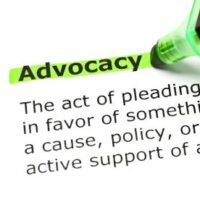Recent Blog Posts

Miami Woman Arrested for Alleged Domestic Violence Incident Involving Bat, Knife, Gun
What happens when an individual in Miami is allegedly arrested for domestic violence? One Miami woman found out this week on Monday, March 3. According to local news reports, 27-year-old Lakeetia Howard was arrested and charged with domestic violence charges after she allegedly attacked the romantic partner of her relative. The arrest report by… Read More »

Miami Woman Arrested after Kicking Dog “Like a Football”, Slapping Dog Several Times Outside Miami Restaurant
A shocking news story regarding a Miami woman who allegedly engaged in a brutal beating of her dog outside of a Miami restaurant earlier this month has some Miami residents wondering just what the laws in Florida are when it comes to animal cruelty. According to local news reports, on Sunday, March 9, Miami… Read More »

Felony? Misdemeanor? What Do They Mean? Learn All About The Difference Between Felony and Misdemeanors Under Florida Criminal Laws
Most Miami residents have probably heard the terms “felony” and “misdemeanor” at some point in their lives. Indeed, terms that are often used in actual criminal cases in Miami are often also introduced to Miami residents in made-for-television court dramas, reality courtroom television shows, and on the big screen in exciting legal-themed movies. However,… Read More »

Miami Woman’s Arrest for Allegedly Selling Unlicensed Weight-Loss Drugs Sparks Conversation about What to Do if You are Charged with a Drug Crime in Miami
A Miami-Dade woman was arrested for allegedly selling unlicensed prescription weight-loss drugs, and members of the community are wondering what options for justice criminal defendants who have been charged with serious drug crimes have under Florida criminal laws. According to local news reports, Yanelys Fundora Acebo, a 44-year-old Miami-Dade woman, was arrested on Tuesday… Read More »

Guilty, Not Guilty, Nolo Contendere – What Do They Mean in a Miami Criminal Case? Learn All About 3 Different Plea Options for Criminal Defendants in Miami
One of the things that most Miami criminal defendants likely have some familiarity with in the context of the State’s case against them is that they will have to enter a plea at some point in their case. Indeed, almost all of us at some point in our lives have heard a criminal defendant… Read More »

Miami-Dade Sheriff’s Deputy Under Hot Water, Criminal Charges for Allegedly Selling Drugs
Miami residents and men and women in blue got a shock this past week when a Miami-Dade deputy police officer was arrested for allegedly selling drugs. The somewhat unusual police-officer-turned-alleged drug criminal involved MDMA, or “molly” pills, and a cruise hosting a dance festival. According to local news reports, Deputy Francisco Mello of the… Read More »

Miami Beach Man Arrested after Assaulting Bar Employee, Hurling Racist Insults, Now Facing Disorderly Conduct Charges
A Miami Beach man is facing criminal charges after allegedly making a racist and violent scene at a Miami Beach bar. According to local news reports, Michael Nixon, 42 years old, from Arlington, Virginia, was arrested after he refused to pay his bar tab. Investigators believe that Nixon visited Norman’s Tavern in Miami Beach… Read More »

Do I Really Need a Miami Criminal Lawyer for My Drug Offense Case? Find Out Why You Should Consider a Lawyer to Defend Against Drug Charges in Miami
Getting arrested in Miami for drug crimes can seem like the scariest thing possible to some Miami residents who have been hit with drug charges. While drugs like marijuana are legal in many other states, the truth of the matter is that recreational marijuana is still illegal in Miami, along with other popular recreational… Read More »

Can a Dinner Plate be a Deadly Weapon in Miami? This Boca Raton Case Indicates Maybe
Can a common household item that is not intended for violence be considered a deadly weapon in Miami under Florida criminal laws? A case from Boca Raton indicates that it just may be. According to local news reports the Miami New Times, 52-year-old Mark Roher was arrested and charged with felony aggravated battery with… Read More »

Two Men Arrested on Murder Charges in Miami-Dade County – What is the Maximum Penalty for Second-Degree Murder in Miami?
Two men have been arrested in Miami-Dade County after a shooting in which one person died, and another was seriously injured. According to local news reports, 31-year-old Andrew Riley and 20-year-old John Lockey were arrested on second-degree murder and other serious criminal charges for their alleged role in a December 22 shooting in which… Read More »
